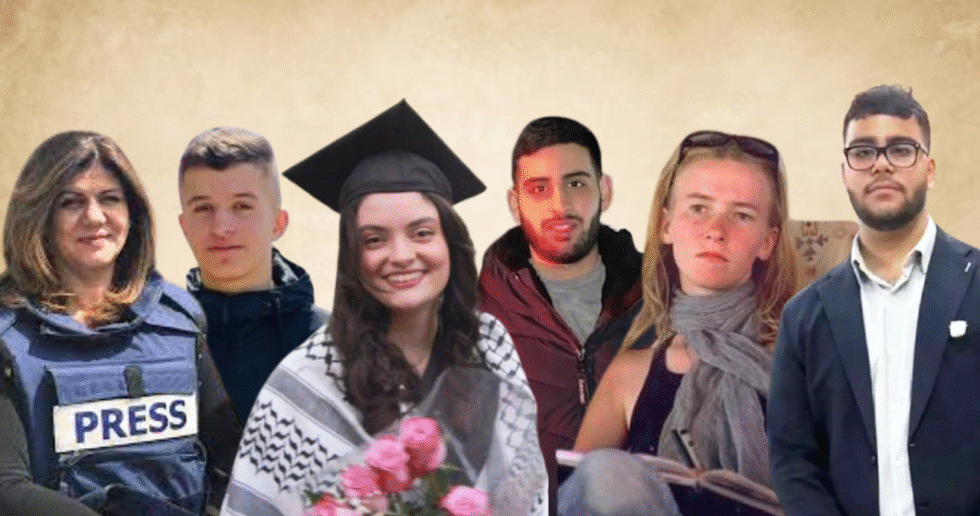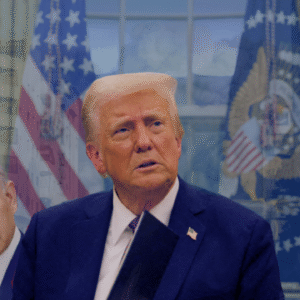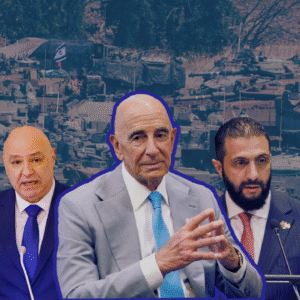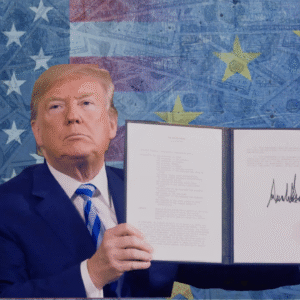The U.S. Defends Its Citizens—Unless They Die in Palestine

On July 11, 2025, 20-year-old Sayfollah “Saif” Musallet—a Palestinian American from Tampa, Florida—was beaten to death by Israeli settlers while visiting family near Sinjil, West Bank.
Accounts from his family and Palestinian officials describe how settlers encircled him for three hours, obstructed ambulances, and delivered fatal blows, killing him before he could reach a hospital.
U.S. Ambassador Mike Huckabee publicly condemned the incident as a “criminal and terrorist act,” urging Israel to “aggressively investigate,” though these statements stand in stark contrast to a broader U.S. policy marked by a lack of enforcement or accountability.
Saif is the ninth U.S. citizen killed in the West Bank since 2022—none of which have resulted in U.S. sanctions or criminal charges.
A History of Inaction
From early 2024 to the present, at least nine Americans—including Tawfic Abdel Jabbar (17) and Mohammad Khdour (17)—have been killed by Israeli forces in similar circumstances.
After the deaths of Abdel Jabbar (shot on January 19, 2024) and Khdour (February 10, 2024), the U.S. offered condolences and initiated embassy visits, but no prosecutions followed. Notably, former President Biden issued modest visa and financial restrictions on four settlers in early 2024—a rare move—but no lasting measures materialized.
Human rights groups, including CAIR, and affected families describe a “pattern of impunity.”Washington may request investigations, but it does not enforce consequences, apply diplomatic pressure, or hold anyone accountable.
Dating back several decades, there have been several instances of Israeli settlers or forces killing U.S. citizens. Infamously, American activist Rachel Corrie was crushed and killed by an IDF bulldozer in 2003. She was 23 years old.
In 2009, Tristan Anderson, a U.S. activist, was struck in the head by a tear gas canister fired by Israeli forces during a demonstration in Ni’lin. Though he survived, he was left permanently disabled—blind in one eye and brain-damaged. No Israeli personnel were charged.
In 2022, the killing of Shireen Abu Akleh, a Palestinian-American journalist and veteran Al-Jazeera correspondent, made global headlines. She was shot in the head by Israeli snipers while wearing a press vest in Jenin.
Though international investigations, including one by the U.N. and several media outlets, pointed to Israeli responsibility, U.S. officials stopped short of calling for accountability. The FBI opened a probe, but no Israeli soldier has been charged or sanctioned.
The trend continued in 2024, when Tawfic Abdel Jabbar, a 17-year-old from Louisiana, was shot dead by Israeli settlers in the West Bank. Weeks later, Mohammad Khdour, another 17-year-old U.S. citizen, was killed in his vehicle by Israeli gunfire.
Most recently, Ayşenur Ezgi Eygi, a 26-year-old Turkish-American activist, was fatally shot by Israeli forces at a protest in Beita in September 2024. As with the others, U.S. officials expressed concern, but no legal or diplomatic actions followed.
This decades-long string of deaths—of students, activists, journalists, and children—has generated mounting outrage among civil society groups and Palestinian-American communities who see a consistent pattern: Israeli impunity backed by American silence.
Selective Defense of American Lives
The United States has a long history of responding swiftly and forcefully when its citizens are harmed abroad—unless the perpetrator is Israel.
In October 2020, American aid worker Philip Walton was kidnapped in Niger by armed militants. Within days, U.S. special operations forces launched a high-risk rescue mission in northern Nigeria, killing all but one of the captors and extracting Walton safely. Then-President Trump declared it a “big win” for U.S. forces.
Similarly, in 2014, after American journalist James Foley was executed by ISIS, the U.S. launched airstrikes against Islamic State targets in Iraq and Syria and conducted special operations missions targeting key ISIS leadership.
The killing of American civilians by a non-state actor resulted in a sustained military campaign that continues to this day. Even economic sanctions have been used as a tool when diplomacy was not enough.
In 2018, President Trump imposed sanctions on two top Turkish officials after the imprisonment of American pastor Andrew Brunson, eventually leading to his release. Though no American was killed, the administration showed it was willing to apply hard pressure to protect its citizens abroad.
A Policy of Unequal Worth
When Americans are killed by hostile states or non-state actors, the U.S. has shown it will act swiftly—with force, sanctions, or diplomatic leverage—to defend its people and project resolve.
When the same happens at the hands of Israel, however, that resolve vanishes. The deaths of U.S. citizens—activists, journalists, teenagers—at the hands of Israeli forces or settlers have been met not with consequences, but with condolences; not with justice, but with joint investigations that rarely materialize.
This double standard erodes not only the moral credibility of U.S. foreign policy but also the trust of the American public—particularly Palestinian-Americans—who see their citizenship treated as conditional.
A government that prides itself on defending its citizens abroad cannot continue to turn the other cheek when their lives are taken by an ally. Until real accountability is demanded—not just in words but in action—the message remains clear: American lives matter—depending on who pulled the trigger.
If you value our journalism…
TMJ News is committed to remaining an independent, reader-funded news platform. A small donation from our valuable readers like you keeps us running so that we can keep our reporting open to all! We’ve launched a fundraising campaign to raise the $10,000 we need to meet our publishing costs this year, and it’d mean the world to us if you’d make a monthly or one-time donation to help. If you value what we publish and agree that our world needs alternative voices like ours in the media, please give what you can today.










